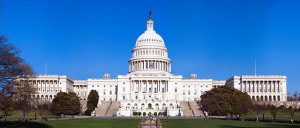On the Hill: Will Congress Now Address Others’ Privacy Concerns?

In February the American Humanist Association’s Board of Directors issued a resolution clarifying humanism’s position on online privacy, largely in response to the National Security Agency’s domestic spying scandal that occurred after former defense contractor Edward Snowden came forward with proof that the U.S. government spies on its own citizens and allies.
The resolution states, in part, that the “American Humanist Association supports efforts to promote online privacy, advocates for meaningful government surveillance reform, and opposes actions taken by intelligence agencies that unlawfully monitor the online activities of individuals,” while also calling for the protection of Snowden from criminal prosecution under federal whistleblower laws.
The reaction to Snowden’s revelations was that of justified anger and disbelief by the media and American citizens, although some members of Congress tried to downplay the impact of the NSA’s spying while calling for Snowden’s extradition and arrest. This reluctance by some members of Congress to condemn domestic spying and the overreach of intelligence agencies left many people despondent over their government’s tacit and even explicit endorsement of these practices, with many feeling that Congress was simply out of touch with mainstream opinion on the issue.
The apparent acceptance of domestic spying by our elected representatives quickly changed course with a recent statement by the chairwoman of the Senate Intelligence Committee, Senator Dianne Feinstein (CA), who accused the CIA of secretly searching a Senate computer system and spying on members of Congress. While an argument can easily be made that all American citizens should be protected from being spied on without a warrant, regardless of whether or not they serve in government, this prohibition on unlawful spying should be followed to the letter when it concerns victims who have jurisdiction over intelligence agencies. To do otherwise would be an obvious conflict of interest that would give intelligence agencies an unfair leg up on any pending investigations into their activities and could allow them to circumvent congressional hearings that are intended to hold intelligence officials accountable for other illegal activities.
Privacy should be an issue on the forefront of every humanist’s mind, not only because our right to privacy is guaranteed by the Bill of Rights, but also because it is a fundamental human right. Without the ability to feel secure when we go online, how can we ever truly believe that we live in a free society where we aren’t spied on at the whim of intelligence agencies? While members of the government are finally making this realization because they themselves have now been impacted by unlawful spying, humanists and other Americans must continue to make their opposition to such practices known if we ever want to see a true change.
